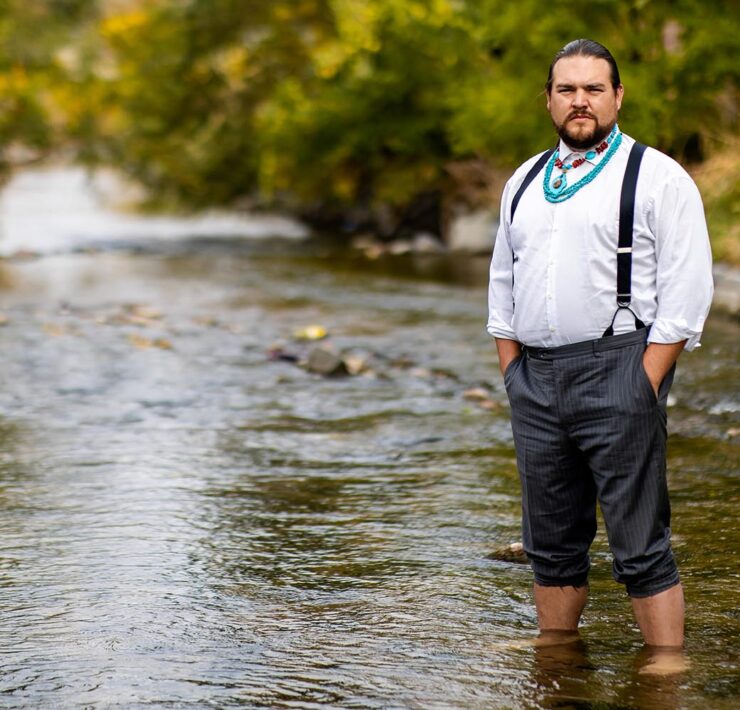OFM News: Local Queer Voters’ Guide

Julie River is a Denver transplant originally from Warwick, Rhode…
Voters in Denver and Colorado Springs already elected their mayors this year, which might have some thinking that their civic duties have been fulfilled for the year. But before you put electoral politics behind you and immediately start to forget the names of all the officials you elected to office, don’t forget that November 7 is still election day in Colorado, with some important measures on the ballot and a number of important races around the state. We’re running down some of the big races and what they mean for Coloradans.
Proposition HH – Property Taxes vs. TABOR (Taxpayer Bill of Rights)
There are two measures on the ballot all across the state, Propositions HH and II, and they’re pretty easy to understand once you get past all the really dry language in the measure. Essentially what HH would do is reduce future increases in property taxes for at least 10 years. This wouldn’t lower current property taxes, but simply allow for smaller increases.
The measure would also allow the state to keep TABOR refunds for 10 years, with the option of extending that beyond 10 years without further voter approval. What is TABOR exactly, you ask? While it may sound like a species from Star Trek, it’s actually an acronym that stands for Taxpayer Bill of Rights. The Taxpayer Bill of Rights was a 1992 constitutional amendment that requires voters to approve tax increases in the state, but also puts a cap on government growth and spending, with any money collected above the cap being refunded to taxpayers. One way or another, Colorado taxpayers are getting money back, but if HH passes it will eliminate income brackets and give everybody the same refund amount. If HH fails, refunds will be tied to income brackets, with those making more money getting bigger refunds.
Proposition II – Retain Nicotine Tax Revenue Because of 2020 Underestimate
Okay, if Proposition HH was a bit much to wrap your head around, you can relax because II is even easier to under- stand. In 2020, voters approved Proposition EE which increased nicotine and tobacco taxes to fund a program called universal preschool that provides state-sponsored preschool education for children. However, much like everyone in 2020 vastly underestimated how long the pandemic was going to last, lawmakers in 2020 vastly underestimated how much money Proposition EE would bring in for universal preschool.
The state brought in an additional $23.65 million, proving that a tax on poisoning yourself is more lucrative than expected. But the state isn’t allowed to keep that extra money without voter approval. If Proposition II passes, the state gets to keep that extra revenue. If Proposition II fails, the money goes back to the wholesalers and distributors, and the tax on nicotine and tobacco would go down next year. While that would mean cheaper cigarettes in the future, it would also put more money back into the pockets of the people selling you those cigarettes and, really, who wants that?
Boulder Mayoral Race
Traditionally, Boulder, Colorado has never had direct elections for mayor, choosing instead to have the city council elect the mayor, which is only a slightly more sophisticated system than letting a monkey throw darts at a dartboard. However, after a 2020 ballot measure in the general election, the mayor will not only be elected by the people this election, but they’ll be elected by ranked-choice voting, making Boulder one of the first test cases for it in the state.
The race is down to four candidates: incumbent Aaron Brockett and challengers Nicole Speer, Bob Yates, and Paul Tweedlie. LGBTQ+ issues haven’t come up for most of the candidates, as Boulder is Colorado’s most notoriously hippy-dippy city to begin with, but one candidate seems to want to make sure LGBTQ+ issues are at the front and center of her campaign. Nicole Speer—a member of the Boulder City Council and the Director of Research Services for the University of Colorado brain imaging research facility—has a bisexual pride flag as the background of her official campaign logo.
Naturally you shouldn’t be voting for someone just because they’re queer, unless of course you’re voting on who should win Dancing With the Stars, in which case you were fully justified in voting 500 times for Shangela. But in this race, there’s not a ton to differentiate the candidates from each other. Brockett, Speer, and Yates all cite affordable housing, homelessness, and mental health as top priorities. So if Speer being bisexual is what makes her stand out to you, that might be understandable.
Aurora Mayoral Race
Aurora decides between three candidates for mayor, as a bal- lot measure known as the “strong mayor” failed to make it to the ballot. While “strong mayor” sounds like a fun idea for a weightlifting contest for city mayors, what the initiative actually would have done is give more power to the mayor’s office, which sounds much less fun. Organizers failed to meet the city’s deadline and plan to make another attempt to get it on the ballot for 2025.
Mayor Mike Coffman, the incumbent, is the only one of the three candidates who supported the strong mayor initiative. “I’m disappointed that the ballot measure is not on the 2023 ballot to give the opportunity for voters to decide the issue, but I’m glad that it can be on the ballot in 2025 without having to gather signatures again,” Coffman tells Denver7. His challengers Juan Marcano—a city council member and former architectural designer—and Jeff Sanford—who has a military background—both expressed that they’re glad the initiative failed, with both challengers telling Denver7 that the initiative garnered signatures through deceptive means.
Denver Board of Education
The Denver Public School’s Board of Education Election is an important race to watch, as the current school board has been highly criticized for lack of transparency and a level of infighting that makes the United States Congress look like a bastion of civility and teamwork. Much of the controversy surrounds a series of three shootings at Denver East High School this past school year, the latest being last March when a student shot two administrators and then died of a self-inflicted gunshot wound.
Candidates are up for election in Districts 1 and 5, and there’s also an At Large seat up for grabs. Paul Ballenger is one of the candidates for the At Large seat, and it’s pretty obvious what his solution is for the student safety problem considering he penned an opinion piece for the Westword in which he criticized school board members for not being receptive to having armed police officers on campuses. But while Ballenger would have you believe that there’s an overwhelming majority calling for School Resource Officers (SROs) while the school board blithely ignores their pleas, the reality of the situation is much more nuanced.
Study after study finds that SROs don’t do much, if anything, to prevent school shootings, and the school board unanimously voted in 2020 to remove SROs from Denver schools based on findings that the majority of students being ticketed or arrested were minority students. Considering that, as of late, it’s been difficult to get the entire school board to unanimously agree that it gets dark at night, a unanimous vote should probably be a sign that action was necessary.
One of Ballenger’s opponents, Brittni Johnson, has a very different plan for school safety, as her website touts a plan of gun violence prevention and “safety though equity,” focusing on ensuring access to comprehensive mental health resources, aiming to meet the national guideline of one mental health specialist for every 250 students, as well as an alternate responder system to give students in crisis access to mental health professionals. While it’s important to remember that some consider mental illness a “scapegoat” used after mass shootings to direct attention away from gun reform, focusing on getting young people mental health can hardly be a negative, and it seems like a better idea than filling schools with more police officers when there’s little evidence that they’re helpful.
What's Your Reaction?
Julie River is a Denver transplant originally from Warwick, Rhode Island. She's an out and proud transgender lesbian. She's a freelance writer, copy editor, and associate editor for OUT FRONT. She's a long-time slam poet who has been on 10 different slam poetry slam teams, including three times as a member of the Denver Mercury Cafe slam team.










